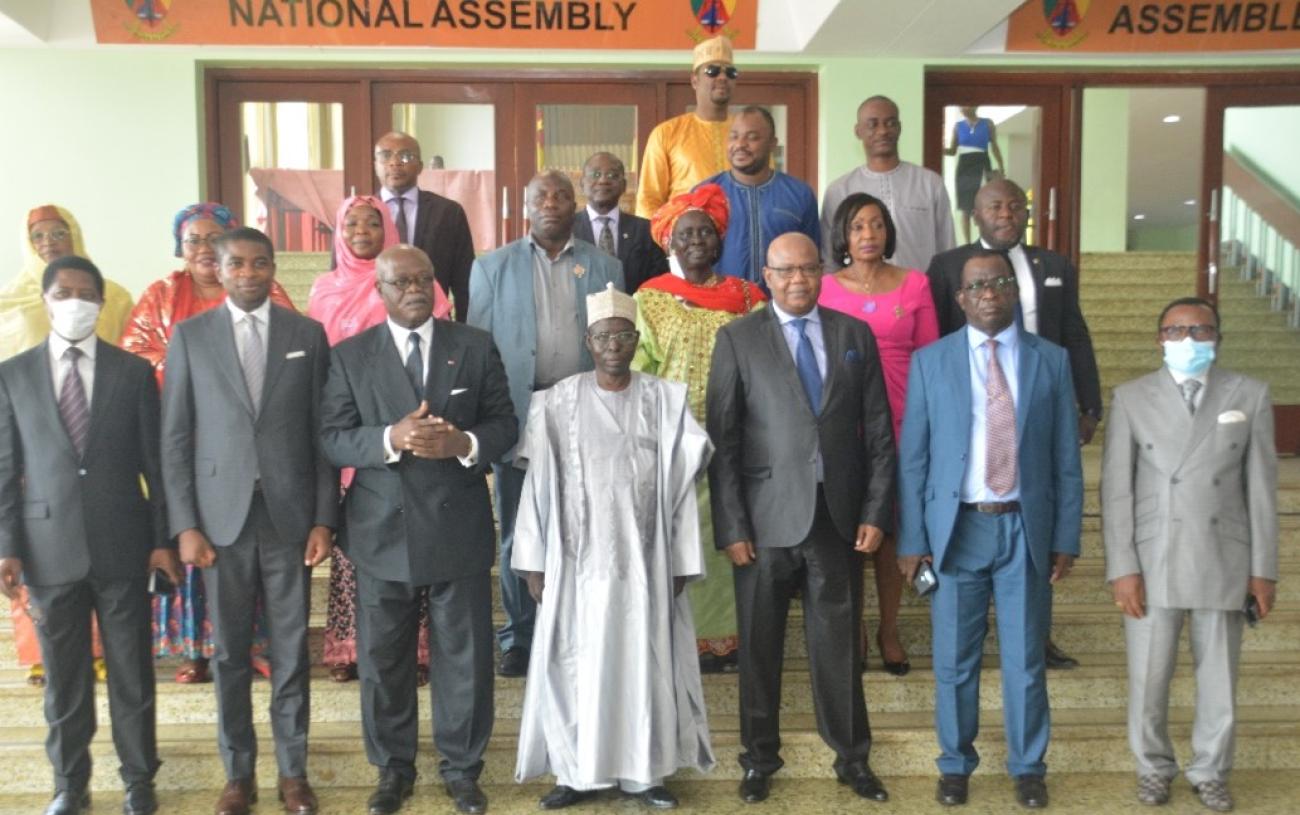On 7 April 2022, CARO, upon request by the Cameroon National Assembly, presented the African Charter on Democracy, Elections and Governance
On 7 April 2022, CARO, upon request by the Cameroon National Assembly, presented the African Charter on Democracy, Elections and Governance (the Charter) to over 30 members of the Constitutional Laws and Human Rights Commission of the Cameroon National Assembly (the Commission). The objective of the presentation was to build the capacity of the MPs to understand the Charter and ensure its implementation.
It emphasised the importance of the Charter as an instrument for development if efficiently and effectively implemented by states. Ensuing discussions focused on the challenges encountered in the Charter’s implementation, the persistence of coup d’états on the African continent despite its ratification, indicators of good governance and on how best members of the Commission can ensure that all stakeholders respect and implement the charter. Participants made a commitment to follow-up on the periodic review submitted by the State to the AU Commission on Democracy and Elections and to request the Government to present to the Constitutional Commission, the last five submitted periodic reports.
They also suggested the possibility of drafting proposals to review the Charter so as to redefine democracy from an African perspective, among other aspects. At the end, they expressed a need for more sensitisation and capacity building workshops for members of the Constitutional and Human Rights Commission especially in relation to following up and evaluating the implementation of the code on territorial decentralisation and transfer of competences, as well as on monitoring the detention conditions of prisoners. They also recommended continuous collaboration between the National Assembly and CARO. It should be noted that Cameroon ratified the African Charter on Democracy, Elections and Governance in 2012 alongside four other countries in Central Africa, including: Rwanda (2010), Chad (2011), Sao Tomé and Principe (2019) and the Central African Republic (2019).




